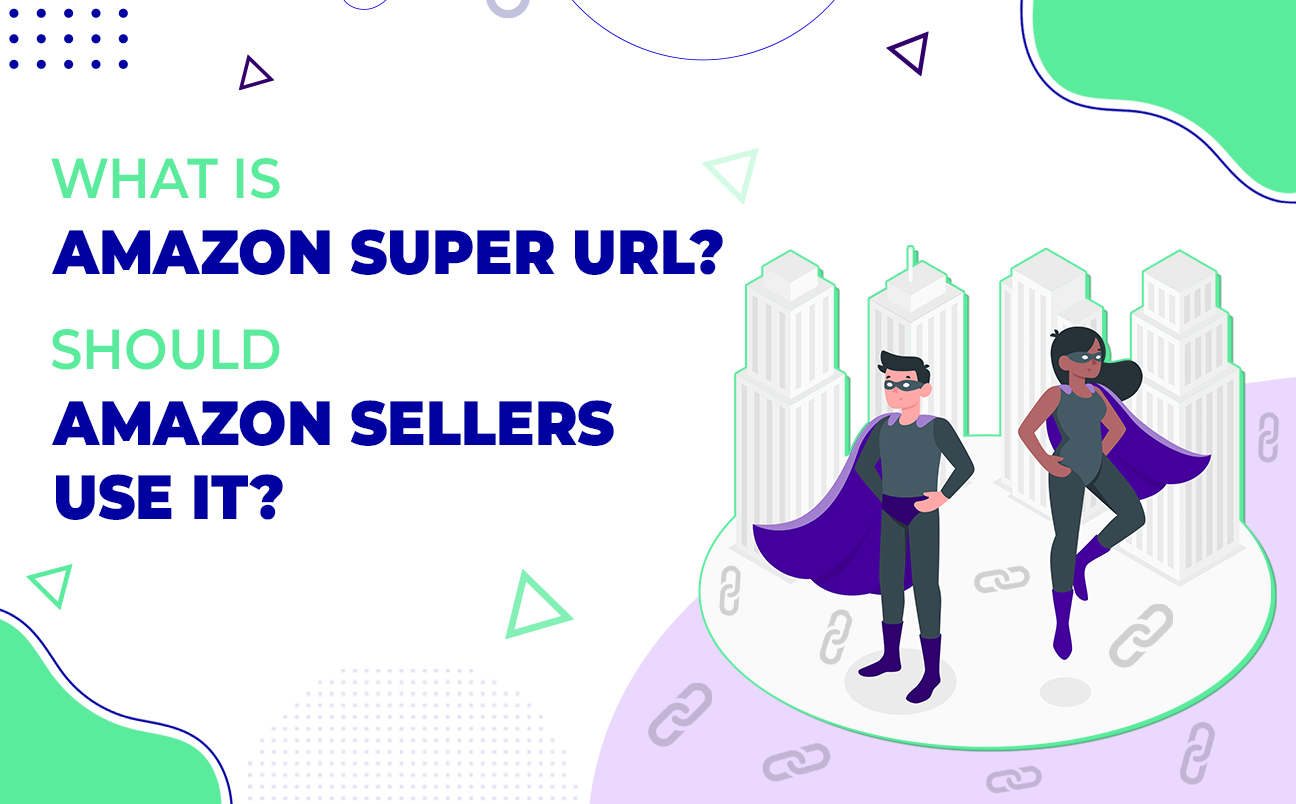Amazon offers sellers immense opportunities to gain visibility and sales. Among the many tactics used to improve Amazon product listings, utilising Amazon super URLs has emerged as an intriguing yet controversial approach. These specially structured links aim to enhance search ranking by mimicking natural shopping behaviour. While alluring, Amazon super URLs have notable risks. Understanding the implications is key for sellers looking to effectively navigate Amazon’s competitive landscape. This post explores how Super URLs in Amazon can impact seller rankings, weighing the pros and cons to provide a balanced perspective on their use.
What is Amazon Super URL?
An Amazon super URL is a meticulously structured link containing specific keywords. It simulates the path a genuine shopper might take – searching for a product using those keywords, clicking it, and purchasing.
Super URLs aim to trick Amazon’s algorithm into thinking this organic discovery and buying activity occurred, thereby increasing the product’s search relevance for those embedded keywords. The goal is to improve rankings and visibility in Amazon search results.
How Do Amazon Super URLs Work?
The mechanism behind super URLs is simulation. When shoppers click an Amazon super URL, Amazon’s system believes that the click and any resulting purchase were driven by a search for the embedded keywords.
This imitation of “organic” activity signals high relevance between the keywords and the product. The more products are bought through these links containing carefully curated keywords, the higher they may rank for those search terms, theoretically gaining visibility and sales.
What are the Potential Benefits of Amazon Super URLs?
The main appeal of Amazon super URLs is the ability to potentially boost product visibility on Amazon’s vast platform, including:
- Improved Rankings: By imitating organic behaviour, super URLs may increase rankings for target keywords, making products more discoverable.
- Higher Sales: Top-ranked products on the first page of search results tend to get more clicks and purchases. Super URLs can help sellers get to that coveted real estate.
- Faster Launch: For new products trying to establish a presence, quickly building search relevance is tough. Super URLs can accelerate this process for new product launches.
What are the Risks of Using Amazon Super URLs?
However, Amazon super URLs also carry significant risks stemming from Amazon’s strict policies regarding manipulation of any kind.
- Policy Violations: Amazon expressly prohibits attempts to manipulate search rankings, reviews, or anything that might undermine the integrity of a free and fair marketplace. While a grey area, super URLs may be deemed manipulative by Amazon, violating their rules. Sellers caught using them risk penalties like suppression or suspension for contravening Amazon’s principles.
- Ranking Demotion: Ironically, while super URLs aim to improve rankings, getting caught by Amazon’s sophisticated fraud detection algorithms may do the opposite. Sudden, unexplained spikes in traffic and conversions can trigger Amazon’s systems and cause your product’s visibility to actually be demoted or removed entirely.
- Other Consequences: Beyond direct penalties, misusing Amazon super URLs can also:
- Damage seller reputation, hindering future business on Amazon.
- Lead to major financial losses from suppressed or removed listings.
- Prompt legal action in cases of clear, egregious violations of Amazon’s terms.
In summary, while super URLs offer the prospect of better visibility and sales, intentionally violating or attempting to trick Amazon’s systems is extremely risky.
How Can Amazon Super URLs Be Used Strategically?
Certain strategies can help maximize super URLs’ potential while complying with Amazon. Cautious, strategic application aims not to actively trick Amazon but rather enhance legitimate discoverability.
Tips to Maximize Super URL Benefits:
- Diversify traffic sources like social media, email, and your website. Don’t rely solely on super URLs.
- Gradually phase in super URLs versus sudden spikes in volume to appear natural.
- Monitor metrics like conversions and organic rankings to gauge impact.
- Carefully tailor keyword selection to closely match your products.
Best Practices for Amazon Compliance:
- Regularly review Amazon’s terms of service for the latest guidelines. Consult Amazon business consultants if unsure.
- Avoid blatantly manipulative tactics in how you implement super URLs. Focus on enhancing relevancy.
- Use Amazon’s own marketing tools as part of your overall strategy.
How Much Does it Cost to Start an Amazon Store in 2024?
Since Amazon charges no monthly fees for a basic seller account, the cost to start an Amazon store in 2024 is relatively low. Some key costs to factor in are:
- Professional seller account – $39.99 per month
- Imaging and inventory preparation – Around $1,000, depending on products
- Product UPC codes and GS1 membership – Roughly $600 initially
- Inspection and approval fees for restricted categories – $100 to over $1,000 per ASIN
- Amazon advertising spend – Variable, can be $100 per month upwards
With the right preparation using Amazon business consulting services, most sellers can launch on Amazon for under $5,000 in 2024. Ongoing costs related to advertising and maintaining inventory. Considerable growth may require investing more in marketing and brand building.
What Products Should You Consider Selling on Amazon?
When assessing what to sell on Amazon, some proven products that can work well include:
- Niche hobby items with enthusiastic demand
- Consumables and supplies that stimulate repeat purchases
- Innovative solutions that improve upon existing products
- Trending products capitalizing on current consumer demand
- Items complementing Amazon’s wide-ranging ecosystem like Alexa accessories
By identifying opportunities in growing or receptive niches, new sellers can find profitable products to sell on Amazon in 2024 and beyond.
Conclusion
In a nutshell, considering the pros and cons is essential when considering Amazon super URLs. While providing a possible visibility and sales boost, intentionally violating Amazon’s guidelines involves major risk. Super URLs present an opportunity to target key search terms but must be deployed strategically to avoid violations. As experts in Amazon account management service, HRL Infotechs can help sellers ethically navigate Amazon’s complex landscape to accelerate success.
